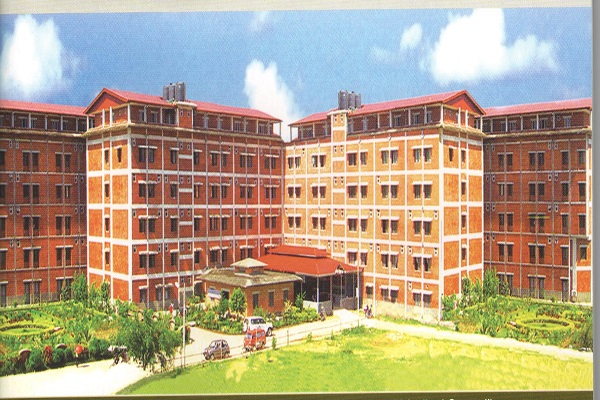College Of Medical Sciences (CMS Nepal)

The College of Medical Sciences is a medical institute in Bharatpur, Chitwan, Nepal. It enrolls around 100 students for the MBBS degree course annually. The International Society for Medical Education Pvt. Ltd and the Ministry of Education of Government of Nepal signed an agreement in 1993 that established the International Institute of Medical Science at Bharatpur, which was re-established in the year 1995 as the College of Medical Sciences. It is a private institute affiliated to Kathmandu University, Nepal and is fully recognized by the Nepal Medical Council.
Located in the heart of Nepal, the institute boasts of its state of the art infrastructure, world-class facilities, and learned and experienced faculty. Out of 100 enrolled students, 20% of the students are Nepal government’s nominees. The rest of the students are self-financed. The self-financing Nepalese students are selected through Kathmandu University’s competitive Medical Entrance Examination. The college has students from various regions of Nepal, India and SAARC countries. The college is fully equipped with a library containing more than 20,000 books and over 17000 medical journals. Apart from academics, the college also focuses on the health and fitness of its students providing opportunities for recreational activities like yoga and gymnasium, indoor and outdoor sports for all-round development.
The College of Medical Sciences is located at a distance of 146 km from Kathmandu and a distance of 240 km from the Indian town of Gorakhpur, which has a major railway junction in Uttar Pradesh and 126 km from the Indian town of Raxual which too has a railway junction. The institute has separate lodging and accommodation facilities for boys and girls along with transport services.
The college has assigned itself some special objectives that it aims to achieve with every student in the institute. It aims to produce quality clinicians and community managers who could deliver the correct health care delivery system and also assist the government in promoting and standardizing medical education and producing appropriate workforce for fulfillment on its obligation to the society. The institute works to make the future doctors understand the psycho-social needs of the people in society ensuring basic healthcare to all.
Highlights
- College of Medical Sciences is affiliated to the Kathmandu University and fully recognized by the Nepal Medical Council
- It has various National & International Collaborations with bodies like B.P.Koirala Institute of Health Sciences, Dharan, B.P.Koirala Memorial Cancer Hospital, Bharatpur Govt. hospital of Bharatpur
- Has various facilities for students


